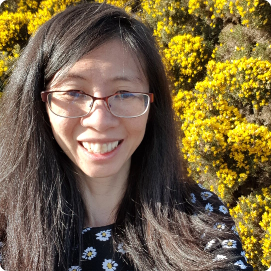Title:
Investigating auditory cognition with natural speech and
music
Abstract:
That cortical activity tracks the dynamics of auditory
stimuli is reasonably well established. In speech and music
perception, this phenomenon produces reliable coupling between
the acoustic envelope of the sound input and the corresponding
cortical responses. However, it remains unclear to what extent
that neural tracking reflects low-level acoustic properties,
as opposed to more abstract linguistic structures. In this
talk, I will discuss a series of studies aimed at assessing
the impact of higher-order linguistic information on the
cortical processing of speech and music sounds. I will
demonstrate methodologies for disentangling neural responses
to stimulus properties at different abstraction levels,
deriving multiple objective indices for probing auditory
perception with experiments involving natural speech and music
listening. I will then describe recent developments of these
measures in the context of developmental research.
Bio:
Giovanni received his Bachelor's degree in Information
Engineering in 2011 and his Master's degree in Computer
Engineering in 2013, both from the University of Padova,
Italy. After a period working on his thesis at University
College Cork (UCC, Ireland), he joined Edmund Lalor's research
lab in Trinity College Dublin where he pursued a PhD in
auditory neuroscience in the School of Electronic and
Electrical Engineering. He received his PhD in 2017 and he
joined the Laboratoire des Systèmes Perceptifs at École
Normale Superieure (Paris) immediately after, under the
supervision of Alain de Cheveigné and Shihab Shamma. Then, he
briefly continued his work on speech communication with
Richard Reilly as a postdoctoral researcher (TCD), while also
working with Simon Kelly at UCD, expanding his expertise into
the Decision Making domain. He holds the title of Assistant
Professor in Intelligent Systems in the School of Computer
Science and Statistics at Trinity College Dublin. Giovanni's
scientific interests centre on understanding the brain
mechanisms underlying speech comprehension. In his work, he
develops data analysis methods and applies them to brain data
to identify the neural processes responsible for the
transformation of a sensory stimulus into its abstract
meaning. Brain electrical data is measured with either
non-invasive (e.g., electroencephalography - EEG) or invasive
(e.g., electrocorticography - ECoG) technologies. The first
aspect of his research is methodological and has produced
novel experimental and analysis frameworks to investigate
cortical auditory processing. The second aspect of his
research is to use such novel methods to test theories on
auditory perception, such as the hierarchical processing of
speech and predictive processing theories (e.g. predictive
coding). Finally, the third part of his work is translational
and involves the identification of solutions to utilise his
novel methods in applied settings, for example as tools to
develop brain-computer interfaces or as objective measures for
the monitoring of language development and healthy
ageing.

